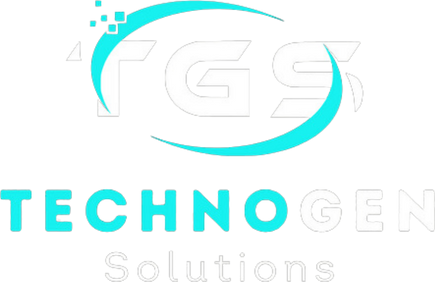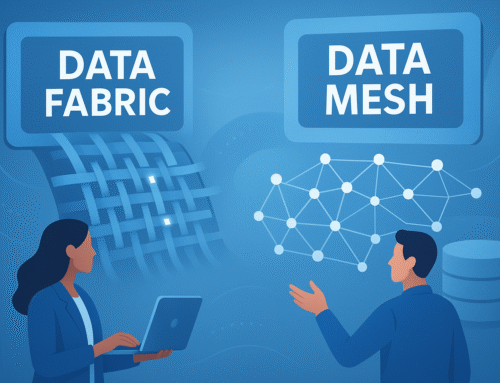In today’s digitally driven economy, ecommerce is no longer a luxury—it’s a necessity. A seamless online shopping experience determines whether a visitor becomes a customer or clicks away. Ecommerce website development plays a crucial role in crafting an engaging, secure, and intuitive journey for online shoppers. Businesses that invest in building user-focused ecommerce platforms set themselves up for success by enhancing customer satisfaction, retention, and conversions.
Core Elements of High-Converting Ecommerce Website Development
User-Centric Design and Responsive Layout
Design is the face of your brand in the digital space. A well-designed ecommerce website doesn’t just look good—it anticipates customer needs.
-
Mobile responsiveness is a must, with over 60% of online shopping done via smartphones.
-
Clean, intuitive navigation keeps bounce rates low.
-
Clearly defined calls-to-action (CTAs) encourage users to move down the conversion funnel.
Fast Loading Speed for Reduced Cart Abandonment
Website speed is a critical factor that directly impacts user experience and SEO performance. Studies show that a 1-second delay in page load time can reduce conversions by 7%.
-
Use image compression and lazy loading.
-
Optimize code and use a content delivery network (CDN).
-
Implement browser caching for repeat visitors.
Secure and Streamlined Checkout Process
The checkout experience can make or break a sale. A secure and frictionless checkout process boosts trust and conversion rates.
-
Provide multiple payment options, including credit cards, PayPal, and digital wallets.
-
Use SSL certificates and PCI-DSS compliance to ensure security.
-
Minimize the number of steps to complete a purchase.
Features That Enhance the Online Shopping Experience
Advanced Search and Filtering Options
Customers should find what they’re looking for in seconds. Advanced search algorithms, auto-suggestions, and dynamic filters enable precise results.
-
Filter by category, size, price, brand, ratings, etc.
-
Implement voice search for hands-free browsing.
-
Use AI to enhance search results based on user behavior.
Personalization and Product Recommendations
Personalized ecommerce experiences lead to higher engagement and loyalty. Use AI and machine learning to tailor recommendations.
-
Display “You may also like” or “Recently viewed” products.
-
Personalize homepage content based on past activity.
-
Send personalized emails with exclusive offers.
Real-Time Inventory and Order Tracking
Nothing frustrates customers more than out-of-stock products or unclear delivery timelines. Keep them informed with real-time inventory updates and order tracking.
-
Use inventory management systems integrated with your ecommerce backend.
-
Offer email/SMS updates for order confirmations, shipping, and delivery.
-
Show estimated delivery times clearly on the product pages.
SEO-Optimized Ecommerce Development for Google Rankings
Keyword Integration and Structured Data
Ecommerce websites need to be SEO-friendly from the ground up. Keyword-rich content combined with schema markup makes your site more discoverable.
-
Use product-specific long-tail keywords.
-
Implement structured data for product listings, reviews, and prices.
-
Optimize meta tags and URL structures.
Content Marketing for Ecommerce Growth
Blogging, how-to guides, and product reviews help drive organic traffic. Integrate a content marketing strategy into your ecommerce platform.
-
Publish keyword-optimized blog posts.
-
Embed videos demonstrating product use.
-
Use internal linking to guide users to high-converting pages.
Ecommerce Platforms That Support Seamless Shopping
Shopify: User-Friendly and Scalable
Ideal for startups and SMEs, Shopify offers a fully hosted platform with beautiful templates and easy customization.
-
Integrates with hundreds of third-party apps.
-
Secure and reliable hosting with 24/7 support.
-
Scales easily as your business grows.
WooCommerce: Flexibility with WordPress
If you prefer WordPress, WooCommerce is the go-to plugin for creating customizable online stores.
-
Complete control over site design and functionality.
-
Open-source with a large community of developers.
-
Seamless integration with WordPress plugins and SEO tools.
Magento: Enterprise-Level Customization
For large-scale businesses, Magento provides unmatched flexibility and advanced features.
-
Supports thousands of SKUs.
-
Robust B2B capabilities.
-
Extensive backend customization options.
Integrations That Enhance Ecommerce Functionality
Payment Gateways and Digital Wallets
Integrate trusted payment solutions for global reach and ease of use.
-
PayPal, Stripe, Razorpay, and Apple Pay.
-
Support for recurring billing and subscriptions.
-
Multi-currency and tax calculations.
Shipping and Logistics Automation
Automated shipping tools reduce errors and increase delivery efficiency.
-
Integrate with FedEx, DHL, and local couriers.
-
Offer real-time shipping rates and estimated delivery times.
-
Enable return and refund management systems.
Marketing and CRM Tools
Marketing automation keeps users engaged across channels.
-
Use tools like Mailchimp, HubSpot, or Klaviyo.
-
Automate cart abandonment emails.
-
Segment users for targeted campaigns.
Analytics and Continuous Improvement
Track User Behavior with Heatmaps and Funnels
Use analytics to identify drop-off points and areas for improvement.
-
Tools like Hotjar and Crazy Egg show where users click and scroll.
-
Google Analytics provides insight into traffic sources and conversion rates.
-
A/B testing tools help optimize layouts, CTAs, and product pages.
Customer Feedback and Reviews
Real-time customer feedback builds credibility and provides insight for improvement.
-
Enable user reviews and ratings on product pages.
-
Use surveys to gather insights on customer satisfaction.
-
Address negative feedback promptly to build trust.
Future Trends in Ecommerce Website Development
AI and Chatbots for 24/7 Support
AI-powered chatbots offer real-time assistance, boosting customer satisfaction and reducing support costs.
-
Answer common queries instantly.
-
Provide guided navigation and product suggestions.
-
Hand off to live agents when necessary.
Voice Commerce and Visual Search
Voice and visual search are redefining how people shop online.
-
Integrate with smart assistants like Alexa and Google Home.
-
Enable users to search products by uploading images.
Augmented Reality (AR) Shopping Experiences
AR helps users visualize products in their environment, increasing buyer confidence.
-
Try-before-you-buy features for clothing, furniture, and accessories.
-
Improve decision-making and reduce return rates.
Conclusion: Build Smarter, Sell Faster
Developing a seamless ecommerce website isn’t just about aesthetics—it’s about creating a functional, fast, and intuitive platform that boosts conversions and customer loyalty. By incorporating smart design, robust backend systems, SEO best practices, and forward-looking technologies, your ecommerce site can outperform competitors and deliver the ultimate online shopping experience.
Whether you choose Shopify, WooCommerce, Magento, or a custom-built solution, investing in professional ecommerce website development is the foundation of your digital retail success.



Leave A Comment